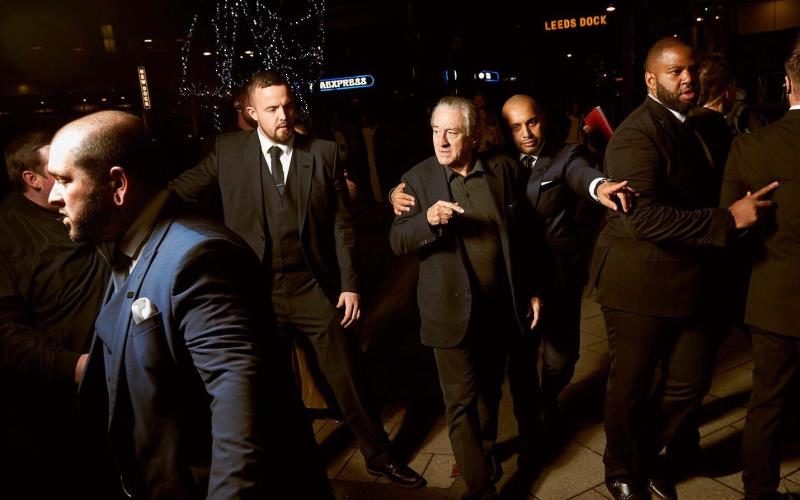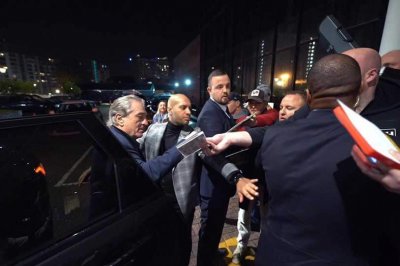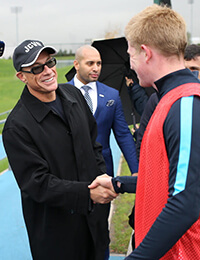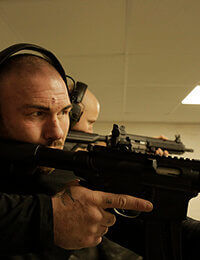
What is Close Protection?
- Posted by Phoenix Group
Frequently used by members of the royal family, Hollywood actors, musicians and every other type of recognisable celebrity and VIP, close protection is a safety precaution that is put in place to minimise the chances of danger coming to the person being protected. It’s the duty of the close protection officer, or CPO, to diffuse any hostile situation towards the person who hired their services, whether that’s done through verbal negotiation, unarmed combat or physical restraint.
Clientele that employ the services of close protection officers include politicians, members of royalty, high-profile business people, athletes, people in the music industry, film and TV stars, and even the relatives of the rich and famous. While it’s usually the case that a CPO would be used by someone notable to avoid any sort of calculated attack, bodyguards aren’t solely available for celebrities and they can be hired by anyone who is willing to pay for personal protection.
How do I become a close protection operative?
As the level of close protection security is usually specially tailored to a specific client depending on their needs and concerns, each case is likely to be different. It’s the job of the CPO to stick by the client and ensure their safety under every circumstance, whether that’s chauffeuring them to their destination and dissipating crowds, or maintaining security at the client’s property and conducting risk assessments for every activity they’re involved in.
To become a close protection officer, extensive security training is required to cater to the many skills involved with the profession. Ideal candidates would typically have strong physical fitness, astute observance, perfect vision and hearing, reliability when working both in a team or individually, the ability to remain calm in high-pressure situations and to remain discreet around clients, and knowledge of the law around relevant topics. However, it is possible for people lacking in many of these skills to learn via the necessary training courses and qualifications.
What does a close protection officer do?
 Simply put, it’s a close protection officer’s job to preserve every aspect of a client’s lifestyle, ensuring safety at every turn. Not only do CPOs physically protect the client, but they also often have to guarantee the safety of their property and possessions from a vast array of potential threats, preventing danger at every level. This could range from a seemingly unthreatening but overexcited superfan getting too close to a client to something as highly-volatile as a terrorist incident.
Simply put, it’s a close protection officer’s job to preserve every aspect of a client’s lifestyle, ensuring safety at every turn. Not only do CPOs physically protect the client, but they also often have to guarantee the safety of their property and possessions from a vast array of potential threats, preventing danger at every level. This could range from a seemingly unthreatening but overexcited superfan getting too close to a client to something as highly-volatile as a terrorist incident.
Depending on the needs of a specific client, working as a CPO could involve many different tasks. For example, if the client wants to be transported in a specific type of vehicle, the CPO would have to meet these expectations, chauffeuring them wherever they need to be. A client might also feel more comfortable in their own home or a property that’s been rented or leased for the duration of their stay if their bodyguard stays close by, so the CPO could have to assess the necessary security measures and remain on-call for an uncertain period of time.
In many circumstances, a client will be travelling abroad. Even the transport between countries can be included in the close protection package, with the option of travel by yacht or private plane included. Through doing this, the CPO is able to watch over the client from door to door and everything in between, keeping a trustworthy face in charge of operations from start to finish.
Are close protection officers armed?
Due to the nature of gun laws in the UK and Ireland, close protection officers aren’t allowed to be armed, with the only exception being for the SO14 Royalty Protection Group, which watch over select members of the Royal Family. For those that are hired to protect members of the royal family, they’re given the option to use firearms based on the fact that the Royalty Protection Group is recognised as a part of the Metropolitan Police Service.
With this being a factor, firearm training is rare in the UK, but there are some places that provide courses for how to handle weapons, how to disarm someone who’s operating a weapon, target training, analysis of different weapons and safety handling drills. CPOs can benefit from this in instances where someone pulls out a weapon, or if they’re working abroad in a country where weapons are permitted.








